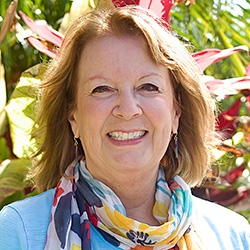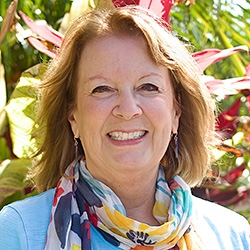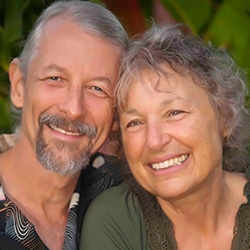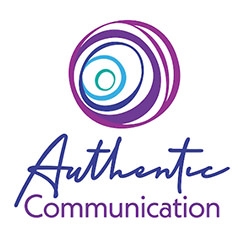

Search Results: consciousness
-
Ask the Trainer: Exploring how unconscious motivations influence the needs we identify and express.
-
Jim and Jori discuss the root of Nonviolent Communication, needs consciousness. Participate in guided processes to deepen your own needs consciousness.
-
Trainer tip: Why do NVC practitioners sometimes use the giraffe as a metaphor for NVC consciousness? What can it help us understand about NVC consciousness? Read on for more.
-
Please join veteran CNVC Certified Trainer, Robert Gonzales, to explore how you can embody the consciousness of NVC and live every moment of every day in the fullness of compassion - for yourself and others.
-
How we deal with “no” is a litmus test of our state of consciousness around power. Listen as John works with participants as they learn to give and receive a "no" from a consciousness of interpersonal connection.
-
Shifting to a needs-based perspective is one of the most powerful—and challenging—aspects of integrating Nonviolent Communication (NVC) into daily life. In this short video, Mary Mackenzie offers three simple, practical tips to help you cultivate needs consciousness and transform how you experience your world and relationships.
-
Trainer Tip: Even when you hit deep emotional bottoms, instead of deciding whether something is good or bad, get clear on how you feel about it and what needs it will or will not meet. Let the Universe do the rest. Then take action to resolve any situations that are not enjoyable to you.
-
We sometimes forget our intention to stay fully present and awake, it happens to all of us. Join CNVC Certified Trainer Arnina Kashtan as she explores this forgetting, how we hold it and what we can do about it.
-
Listen to John talk about the inner and outer mediation process, the importance of the "3rd chair," and an experience of working with Pakistani elders.
-
An addiction to something (eg. opioids, fats, sugars, salts, cigarettes, coffee, alcohol, etc.) or a compulsion (eg. gambling, shopping, working, sex or love addictions) is often an unconscious attempt to soothe trauma - fear, loneliness and shame that's frozen in unconscious memory. The addiction or compulsion is a substitute for what we really need. It is an endless craving that's never enough. Read on for more.
-
-
-
-
Jim and Jori Manske explore the considerations of expressing ourselves honestly, considerations that lead to more fully conscious and nonviolent connections.
-
Taking a look at how our unconscious biases often go unexamined and unchallenged.
-
-
-
CNVC Certified Trainer Miki Kashtan explains how NVC's OFNR process is a tool to train our consciousness, rather than the "correct" way to speak.
-
In this 6-session course Sarah Peyton will take you through the 5 levels of unconscious contracts that can create patterns of self-sabotage and self-defeat. Each session introduces a different unconscious contract based on various aspects of relational neuroscience and provides support for the release of these contracts.
Sarah Peyton shows you how, with deep empathy, self-accompaniment, and an understanding of neuroscience, you can free yourself from your original constraints.
It can be bewildering to be human.
We can make so many choices that are not good for us. Why do we persist in habits, incapacities or self-judgments that are harmful to our long-term well-being?
The answer to this question is surprising – it is usually either love – or - paradoxically, survival!
Love is at the root of self-sabotage.
Though we often aren't aware of it, our nervous systems are essentially still paired with our earliest caregivers and often related to how we responded as a child. Our first interactions shape us in ways that can limit our life energy.
-
Living Compassion in an Ever-Changing World is the last course that Robert Gonzales offered before his passing in November of 2021. It is an intermediate course whose purpose is to deepen our conscious connection to our own vital life force, to develop skills that support inner healing, and to grow and strengthen daily practices that allow us to truly live life to the fullest.

Quick Links
Subscription Preferences
Stay In Touch!
Looking for ways to keep up with NVC Academy news, get special offers, free resources, or words of inspiration? Here are five ways to stay engaged:















